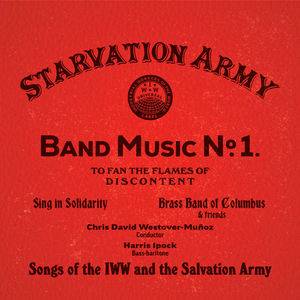Popping Wheelies
_ Extremism in defense of Liberty, Israeli-style. _
by Shelton Hull
Even by the standards we in the West have become familiar with, 2004 is looking to be an exceptionally bloody year. The “pitched battle” that went on near the Pakistani border between that nation’s army (with help from their ISI, our CIA and Task Force 121) and unknown ruffians may have led to the demise of Al Qaeda consigliere Ayman Al-Zawhiri, OBL’s personal physician and founder of Egyptian Islamic Jihad. At the same time, all the major hotels in Baghdad have been hit by bombs or mortar shells within two days of the anniversary of the War’s beginning, while insurgents have escalated the violence against civilians associated with coalition forces.
The rebirth of socialism in Spain is widely perceived as a reaction to the vicious terror bombings on March 12 in Madrid, which could have been much worse, and all the other usual hotbeds remain hot as well. While the acquisition of high-value targets does indicate progress, the fact is that the War on Terror has in fact only escalated on all sides since it started. Most people, when asked, will say that this phase of the war began on September 11, 2001, because overt, large-scale militarism by the US was deemed necessary for the first time ever in response to the threat of global jihad. This is about half-true. I would suggest, however, that the War on Terror officially began on September 29, 2000– the first day of the second Palestinian intifada.
At about a quarter after five a.m. on March 22, an Israeli helicopter fired three missiles that killed an old man in a wheelchair as he was leaving morning prayers at a mosque in Gaza City; all the remained was his head. Before the reader rushes off to forward me an internet petition, let me add that they were aiming for the old man, and it’s hard to blame them for doing so. His name was Sheikh Ahmed Yassin; he was the founder of Hamas, and thus complicit in the murder of hundreds of Jews and a number of young Arab people encouraged to die as martyrs in an ill-conceived and futile resistance to the Israeli occupation. For this he was publicly executed by the IDF.
Thousands of Palestinians rushed into the streets after Yassin was killed. They carried around his shredded garments and shattered, smoldering wheelchair. It looked like the aftermath of a suicide bombing, except without any building or bus debris. His colleague, Abdul Rantisi, cut promos for the western media. “This is open war,” he said. He survived a rocket attack some months ago, after which Yassin went on the air to denounce his targeting and call for retaliation. He was later targeted himself, but lived for several more months of the second Intifada before his luck ran out on the 22nd. Odds are that Rantisi will be next, once Hamas gives the Israelis a reason.
It could be argued that the war never officially started and will never truly finish, but that not an argument for today. The perception of the masses is a powerful thing; it gets people motivated to do the will of government, which is an important step toward a winning war. I’ve always tried to hold my government up to the highest moral standards I could construct, because of my sincere belief that the United States represents a peak of sorts in the grander vision for all mankind, as defined by the teachings of Christ, Moses and all the other prophets and truly holy folks of time.
That tendency, which I think is legitimate, has remained during the War on Terror, but there’s a difference now, because I no longer feel that any state is truly capable of mercy or compassion, which means that there will be none forthcoming for us if we lose this War. America’s infatuation with European norms have left us “allied” with people whose full and exact nature remains unknown outside (hopefully) the highest levels of our intelligence community. For every acknowledged or affiliated terrorist, there may be 10 others whose interests align with them, and who need merely the excuse to join up with a global jihad. Would they say so in public? Of course not. People have died to protect such confidences, and one can’t really blame them.
The central issue of this year’s election is the extent to which foreign interests have entrenched themselves within the government, the media and related intellectual institutions in the United States. This subject is rarely addressed, and then only in terms of our relationship with Israel. However, that relationship is easily the most transparent of those now relevant to our unique strategic situation; whatever concerns one may have at times with Israeli policies, we can be sure at least that we are all friends and real, intractable allies. Israel, however, is the only country of which that can be said. The rest have partly or wholly different motivations and needs.
A world divided over the American occupation of Iraq appears united in their condemnation of the Israeli action. Jack Straw, Hosni Mubarak and Dominique de Villepin agree on nothing, except that the Yassin hit was worth a public, televised dis. Why? Because he was old and feeble? So? Israel has the right to defend itself, and so does the United States. The lesson of Intifada II is that it’s best to deal with problems early and decisively, lest they fester. It is arguable that had Yasser Arafat or Sheikh Yassin been targeted for such treatment back when Ariel Sharon was threatening to, or even earlier, the Palestinian people might now have a leader with vision, someone who wouldn’t point them toward the edge of a cliff and have them leap.
This war is the first in which civilians on the American mainland are truly vulnerable to death or catastrophe. There is a cynicism at the heart of suicide strikes against women and children, of giving doomed non-combatants no possible way to save their own lives, of creating situations where hundreds or thousands are killed and millions more must watch the dying on television. This is something the Israelis understand all too acutely these days, and which we Americans are trying very hard not to become any more familiar with than we are already.
March 23, 2004












